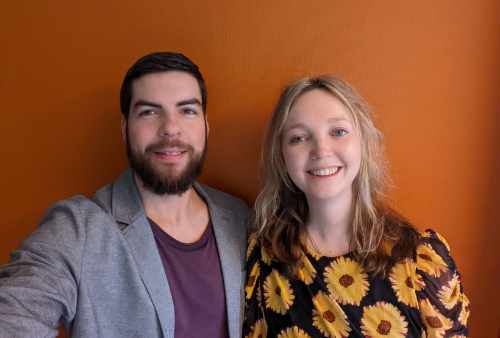As a coaching practice that is part of the Guild of Guides (of The Netherlands), it’s imperative to follow the code of conduct that has been cooperatively made. This way, coaches like us are held to a standard that ensures a safe and comfortable experience for people coming to us for coaching, assisted by psychedelics.
Here is our commentary on the Guild of Guides Code of Conduct to help clarify the rules and give our perspective on some of the thoughts behind them.
Participant’s Safety
- Guides conduct exhaustive physical and mental health screening of participants and ensure their clients receive appropriate and adequate support before, during, and after a psychedelic experience.
- After our initial introduction call, we will send you our intake questionnaire. This questionnaire asks about many mental and physical health aspects and informs participants about known contraindications. This is a logical step and one that we know most psychedelic coaches use. In most cases, it’s a questionnaire that comes from the guide/facilitator, though some practices in the United States have outsourced this step to a third party.
- Guides inform participants and clients about the risks and benefits of partaking in a psychedelic experience and offer insight into their own capacities and limitations. They work with written informed consent. Guides do not give medical advice.
- This describes the next step that follows the intake questionnaire, which might already be partly discussed in the introduction call. As a guide/coach, we are well aware of our limitations and that we’re not working within the medical system (and thus refrain from giving medical advice).
- Guides are responsible for the setting, upholding, and monitoring of appropriate boundaries within the guide-client relationship. They are aware of power dynamics and disparities, do not engage in sexual and romantic relationships, or in any inappropriately exploitative manner. They never pressure clients to take a psychedelic substance and respect their autonomy. As a rule, guides will not allow participants or clients to leave the designated space during the effects of the substance, without consulting with and consent of the guide.
- The power dynamics at play within sober coaching are already leading to complicated relationships in some coaching relationships. This is only heightened by the use of psychedelics. This makes it important to discuss things like touch (e.g. holding a hand, touching a shoulder) something we do before the coaching session. In our experience, and we hope it’s the same for other coaches, this will be the only form of intimate touch (besides a hearty hug when you leave).
- Guides ensure that personal information about the client will be stored safely, in compliance with the law, and will never be shared with anyone else without prior consent. Guides can share personal information of clients with other guild members under certain conditions. Guides ensure privacy and confidentiality before, during, and after retreats.
- We won’t share your information with other parties. During conversations with other guides/coaches, we will discuss cases without identifying personal details. We believe that the one-on-one coaching framework that we’re applying helps ensure even more privacy than during retreats with multiple people there. Testimonials with identifying information are only shared when someone approves of this.
- Guides will provide clients with appropriate and reliable preparation, integration, and aftercare for a psychedelic experience. They will reach out to relevant professionals, colleagues, or third parties if they can not offer the needed support.
- This fifth guideline matches with the second about not being able to provide medical care ourselves. If necessary, we know who to refer to (Lotte has worked in mental healthcare for over 9 years).
- Guides practice mindful care when touching clients and pose boundaries to their use of touch, based on their professional capacities and limitations. They never engage in sexual touch of any sort.
- As discussed in the third guideline, there is no touch beyond what is discussed beforehand.
- Guides hold a position of authority over the participants and are aware of this power relation and the responsibilities it brings. They do not proselytize nor enforce their own worldview.
- This is a guideline that we hold dear to our hearts. Each individual comes in with a different worldview, which might differ greatly from ours. So, we respect that and serve clients as a sounding board, not as authorities that ‘know it all’.
- Guides have a complaints procedure in place and can contact/refer to the external confidentiality person employed by the Guild of Guides NL.
- You will have the ability to file a complaint if anything has gone wrong during the coaching package. If we don’t come to an agreement, you can take your complaint to the Guild of Guides.
- Guides only share testimonials – verbal, written, video, audio, and with any level of anonymity – under strict conditions and with written informed consent.
- At the end of the coaching package, we will ask you for a testimonial. You are free to leave one if you wish. We will share it in the way you feel comfortable with (with/without picture/video/name). You are also free to rescind the testimonial you’ve given or have your name removed.
- Guides set limits and/or conditions to receiving donations and tips, reimbursements, and engaging in business relationships or ongoing services, during and after a psychedelic experience.
- This is less of an issue here in The Netherlands, but it isn’t uncommon for retreats in the US to ask for donations right after the session has taken place (i.e. when you’re not fully back on earth). Of course, this is abusing the power dynamics we talked about in the seventh point. We always discuss the price upfront and are clear about what our future offer is (another coaching package that you can do the earliest six months later).
- Guides will inform clients of their responsibilities before, during, and after a psychedelic experience. They advise against making major life changes in the two months after a psychedelic experience.
- Doing a psychedelic-assisted session with a facilitator is something that can bring you insights that you can build on for a lifetime. Yet, at the same time, these insights can be destabilising when implemented too quickly or without regard for the consequences. That is why we advise you to make no life changes in the week after the coaching. The two months is something that we might have to disagree with slightly, but I think this comes down to how you interpret ‘major’, if you say it’s going to the gym 3x per week from 0x, we believe that is quite the major change, and we’re happy if you do this within the second week. Of course, we advise against making changes such as changing jobs, breaking relationships, etc within the first two months.
- Guides take care to protect their clients against COVID-19 and do not guide clients through psychedelic experiences online.
- The first part of this guideline is a bit outdated, but as you might understand, we take the safety of our clients seriously and won’t hold sessions if we ourselves don’t feel well. This also means that a psychedelic-assisted session is always in person.
The Guild of Guides Code of Conduct serves as a foundational pillar for our coaching practice, ensuring that every participant’s safety, privacy, and well-being are at the forefront of our services. This comprehensive code not only sets the standard for psychedelic-assisted coaching but also emphasizes the importance of trust, transparency, and respect in the guide-client relationship.
As we navigate the profound and transformative world of psychedelics, it’s essential to have a clear ethical compass guiding our actions. We are deeply committed to upholding these principles, and we encourage all participants to familiarize themselves with these guidelines. By doing so, we can foster a nurturing environment where profound insights and personal growth can flourish, all while ensuring the highest standards of care and professionalism.
Tomorrow, we will analyse the ‘Guide Requirements’.


